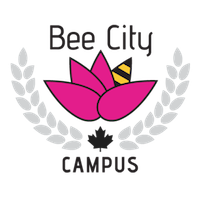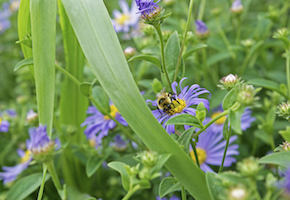Bee Campus
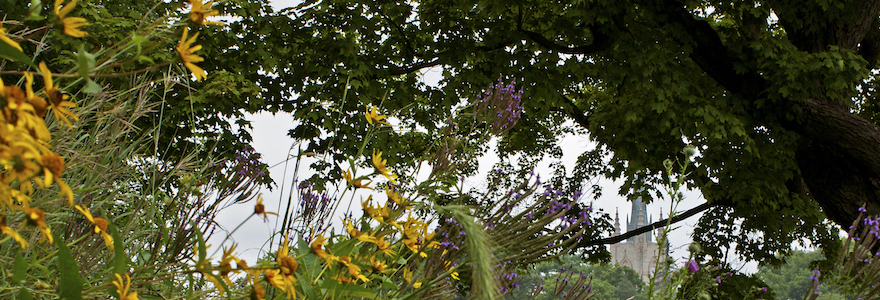
Pollinator Week: June 17 - 23, 2024
Pollinator Week is an annual celebration of pollinators that was initiated and continues to be led by Pollinator Partnership. It is a perfect time of year to be out and about finding pollinators and learning about their significance. Did you know about three quarters of our food crops are dependent on pollinators?
All members of the campus community are invited to participate in these campus Pollinator Week initiatives, or contact sustainability@uwo.ca to request a Green Tour and explore campus with us.
Guided Insect Tour
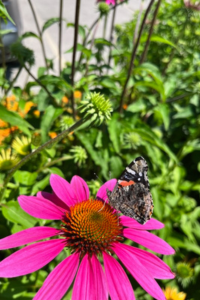 Join us on an exciting Guided Insect Tour led by enthusiastic graduate students from the Department of Biology to explore the fascinating world of insects and pollinators! This engaging tour will take you across various insect habitats on campus, highlighting the incredible diversity of insects and pollinators that call our campus home. Learn about their unique roles in the ecosystem, their behaviours, and the importance of conservation.
Join us on an exciting Guided Insect Tour led by enthusiastic graduate students from the Department of Biology to explore the fascinating world of insects and pollinators! This engaging tour will take you across various insect habitats on campus, highlighting the incredible diversity of insects and pollinators that call our campus home. Learn about their unique roles in the ecosystem, their behaviours, and the importance of conservation.
Date: Monday, June 17, 2024
Time: 12:00 - 1:00pm
Location: Meet at the base of UC Hill (in front of Talbot College)
Pollinator Photo Contest
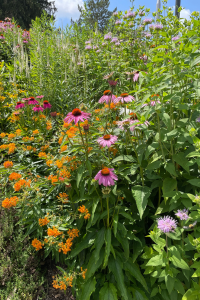 Share your favourite pollinator photos for a chance to be featured on the Western Sustainability Instagram page or website! This social media contest is designed to celebrate pollinators and encourage the campus community to connect with nature. Visit the gardens on campus or explore your own backyard to find pollinating creatures.
Share your favourite pollinator photos for a chance to be featured on the Western Sustainability Instagram page or website! This social media contest is designed to celebrate pollinators and encourage the campus community to connect with nature. Visit the gardens on campus or explore your own backyard to find pollinating creatures.
Photo submissions will be accepted from June 3 until June 19 through Direct Message or tagging @westernuSustain. Up to 10 participants will be selected and contacted via Instagram Direct Messages by the Sustainability Office.
Platform: Instagram
Dates: June 3-19, 2024
Pollinator Scavenger Hunt
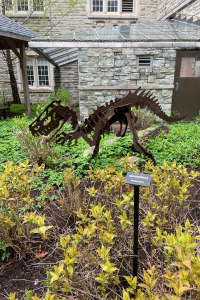 The Pollinator Scavenger Hunt is an exciting and interactive adventure designed to educate and engage the Western University community about the importance of pollinators and their habitats. Participants can work on the scavenger hunt at their own pace (June 17 - 28) solving clues and riddles that will take you to various locations on campus. Everyone is encouraged to get involved, and all responses are optional so if you get stuck on a clue, you can continue the scavenger hunt. The goal is to get out and explore!
The Pollinator Scavenger Hunt is an exciting and interactive adventure designed to educate and engage the Western University community about the importance of pollinators and their habitats. Participants can work on the scavenger hunt at their own pace (June 17 - 28) solving clues and riddles that will take you to various locations on campus. Everyone is encouraged to get involved, and all responses are optional so if you get stuck on a clue, you can continue the scavenger hunt. The goal is to get out and explore!
Platform: Qualtrics Survey will open June 17
Dates: June 17-28, 2024 - complete at your own pace
Teams: Teams can range in size from 1 to 4 members
Prizes: Hospitality Services Gift Cards and Western Sustainability Prize Packs will be given away through a random draw of participants
Native Plant Giveaway
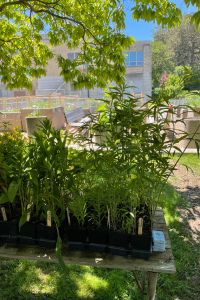 Join us under the big tree at the Western Community Garden for a FREE Native Plant Giveaway. Limit of two plants per person, on a first-come first-serve basis. Native plants are essential habitat and food sources for pollinators and a great way to support biodiversity in your gardens. These plants should be grown outdoors, either in large containers or in the ground. Thank you to Friends of the Gardens volunteers for growing the plants that will be provided at this event.
Join us under the big tree at the Western Community Garden for a FREE Native Plant Giveaway. Limit of two plants per person, on a first-come first-serve basis. Native plants are essential habitat and food sources for pollinators and a great way to support biodiversity in your gardens. These plants should be grown outdoors, either in large containers or in the ground. Thank you to Friends of the Gardens volunteers for growing the plants that will be provided at this event.
Location: Western Community Garden (beside the Greenhouses, near Middlesex Parking Lot)
Dates: Thursday, June 20, 2024
Time: 11:30am until we run out of plants
Limit of two plants per person.
There are over 1,000 species of pollinating insects in Canada. This includes bees, butterflies, moths, flies, beetles, and more! Pollinators are important because they work to maintain the health of ecosystems and support agriculture.
One way we can support pollinators is by planting native plants that provide important resources to pollinators like food and habitat. Many native plants can even be grown in containers to support pollinators on a porch or balcony.
Western was the first university in Canada to become a designated Bee Campus in 2018. This designation recognizes ongoing pollinator work that has been taking place on campus such as:
- Planting native species on campus
- Native plant giveaways
- Educational events and campaigns about native plants and pollinators
- Reduced grass cutting in some areas for wildflowers and grasses to grow
- Maintaining mature pollinator friendly trees
- Naturalizing space behind buildings and along forest

